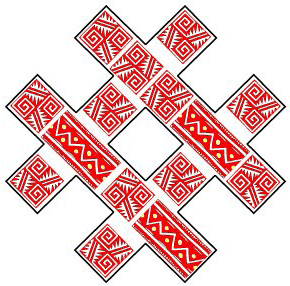AIPP and Members’ Statement on the International Day of Rural Women
AIPP and Members’ Statement on the International Day of Rural Women
October 15, 2018This October 15, we, the indigenous women of Asia, are celebrating the International Day of Rural Women by acknowledging our important role in the elimination of global hunger and malnutrition, and in meeting the goals for gender equality, sustainability of water, energy,human settlements, consumption and production, life on land and partnerships as set out by Agenda 2030.
We, indigenous women in Asia, are estimated to be around 130 million and most of us reside in rural areas where we are the caretakers of our traditional lands. Indigenous women are the primary caretakers and providers of diverse and nutritious foods that are locally produced because we are custodians of our seeds and traditional knowledge. We hold the knowledge of seed varieties, livestock breeds, natural pest control tactics, as well as the past climate variability which has helped us maintain resilience in the face of climate change and extreme climatic events. But the loss of land and forests to land concessions and large scale development projects are causing the decline in indigenous food production and the degradation of our traditional knowledge.
Despite increasing recognition and international consensus about the critical role indigenous women play in ensuring global food security and the eradication of hunger and malnutrition, particularly now in the context of rapidly advancing climate change, there are still limitations in the recognition and exercise of our rights in Asia, and world wide. We are regularly, and systematically, left out of decision making processes that affect us. We have less access to education, to training, to healthcare, to credit, and to justice, factors which ensure that we remain on the periphery of our own development. Growth and opportunities are unevenly distributed, and indigenous women, youth and communities, are all too often left behind.
The empowerment of indigenous women in Asia, and across the world, is not only a central issue but also a necessary requirement in the eradication of hunger and malnutrition in the world. The 2030 Agenda and its stand-alone goal on gender equality, Goal 5, represent a unique opportunity to advance the rights of indigenous women and address many of the challenges we currently face. In fact, the entire 2030 Agenda for Sustainable Development is a single overarching vision for the transformation of societies.
Indigenous women must be empowered to achieve the Agenda 2030 because we have the knowledge and the capacity to share and care. This capacity to share and care will be needed more and more in a period of agrarian transformation, privatization and resource extraction, and social alienation. Indigenous women, with the capacity of caring and sharing will be tomorrow’s torch bearers of how to be human and how be sustainable. On this International Day of Rural Women, and as a part of the Global Campaign for the Empowerment of Indigenous Women for Zero Hunger, we are raising the visibility of indigenous women’s challenges and contributions. If the global community indeed wants to meet the “leave no one behind” promise of Agenda 2030, then the implementation of the SDGs and beyond must incorporate the following factors:
1. Indigenous women in Asia, and around the world, are key allies in the fight against hunger and malnutrition. Recognizing and making their social and economic role visible is fundamental to achieve food security.
2. Indigenous women in Asia, and around the world, are food producers, guardians of native seeds and custodians of traditional knowledge. With their sustainable livelihoods, indigenous women contribute to the achievement of Zero Hunger.
3. Empowering indigenous women in Asia, and around the world, is the answer to poverty reduction. Through their empowerment, indigenous women are leading social and economic changes that foster sustainable development in accord with their own cultures and identities.
4. Even when facing triple discrimination because of being women, indigenous and poor, indigenous women in Asia, and around the world, have demonstrated their leadership and capacities to be agents of change for dignified lives.
5. Indigenous women in Asia, and around the world, are defenders of natural resources, lands and territories. They hold an intimate connection with the territories they inhabit and consider themselves the first guardians of mother earth. As such they are leading the protection of indigenous territories not only in Asia, but worldwide.
6. Integrating the gender and indigenous peoples’ dimension in public policy is fundamental to achieve the Sustainable Development Goals. In order to leave no one behind in the implementation of the 2030 Agenda, the needs and challenges of indigenous women must be reflected in policies for rural development and poverty reduction, and count with their full and effective participation.
For more information on the Global Campaign for the Empowerment of Indigenous Women for Zero Hunger, please click here.
Please see the PDF copy:

